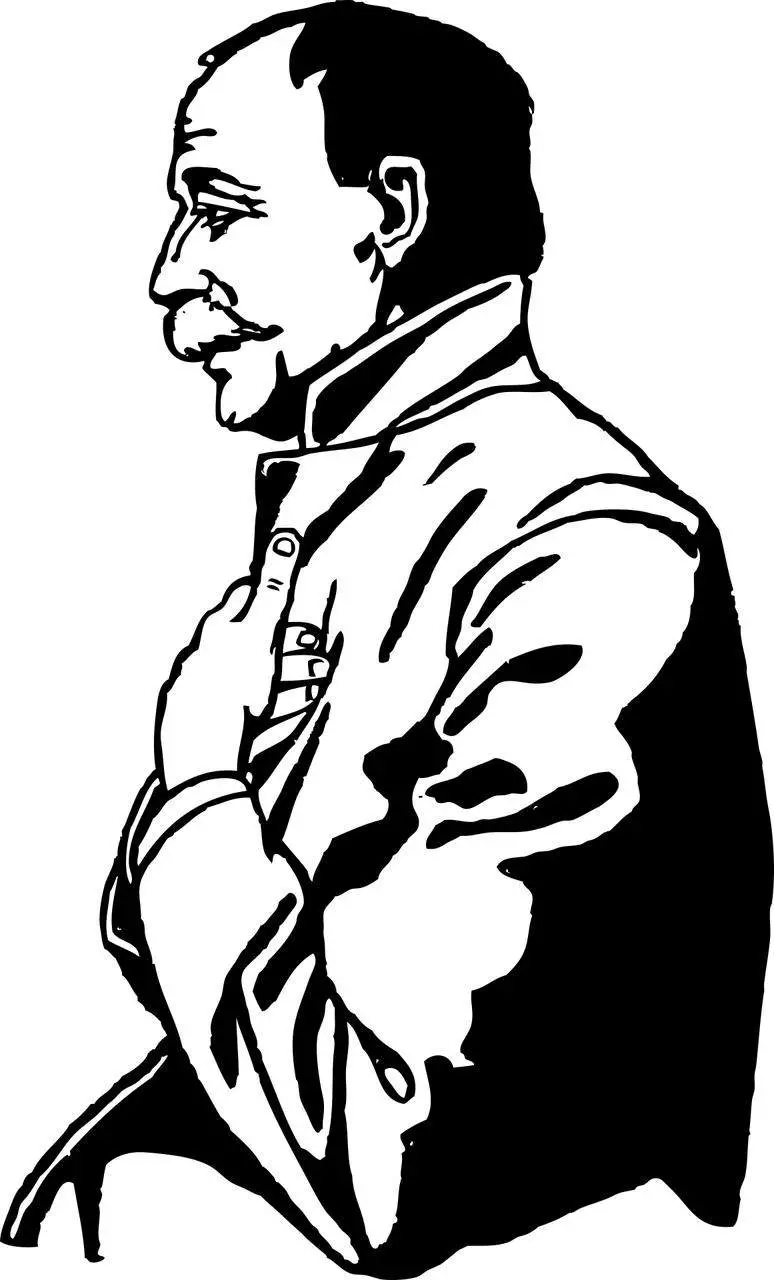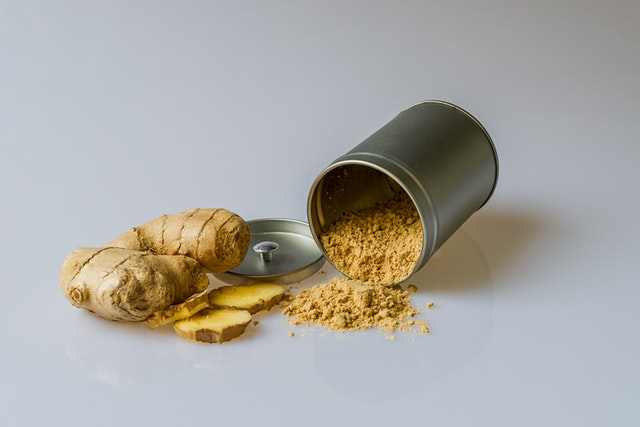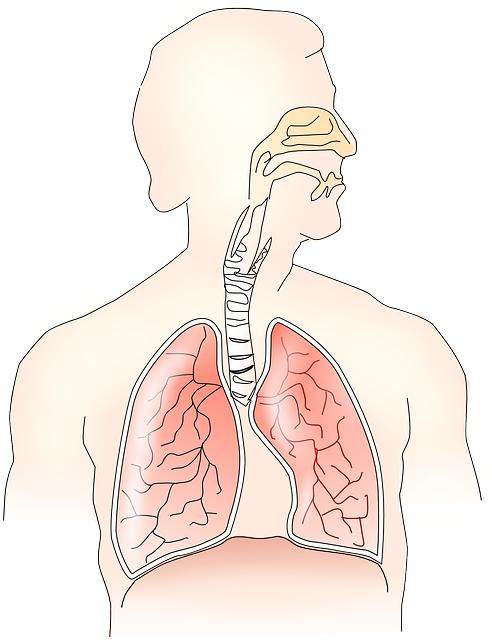What is crackling sound in lungs?
Have you noticed crackling in lungs when you are breathing? It is normal to get worried when you notice a crackling or wheezing sound coming from your lungs when inhaling or exhaling.
However, at times, you will find that these are just but normal sounds made by the lungs when excess mucus has gathered in them, or when you have an underlying medical condition. The crackling in lungs could be a symptom of many varying conditions, some of which are serious, while others are not.
The causative conditions have been known to vary in two main ways including:
- Unexpected asthma attacks
- Lung cancer
The treatments prescribed by the physician will often vary depending on what has caused this condition to appear. When you know about the different factors that can cause crackling in lungs sounds, you can be in a good position to put in place the right intervention measures.
You need to ensure that you check the symptoms accompanying each condition before you can start treatment, as this will help provide you with a better clue on what is affecting you.
What causes crackling in lungs?
Even if the cracking in lungs has become normal for you, there is a need to check out all the other accompanying symptoms. Checking the symptoms accompanying the sound will act to provide you with a good clue on what is happening in your body. You will also get to know whether the sounds are being caused by a serious condition, or by a minor one.
The causes include:
1. Pneumonia
Pneumonia is characterized by the inflammation of the air sac in one or both lungs. In some cases, pneumonia can be fatal, more so when the patient does not seek medical help. It is recommended that you seek medical attention from your GP the moment you notice the crackling sound when inhaling or exhaling.
Additional pneumonia symptoms include:
- Fever
- Headaches
- Shortness of breath
- Muscle pains
- Chest pains
- Fatigue
- Perspiration
Apart from taking the antibiotics prescribed by the GP, you will also need to ensure that you get a lot of rest each day.
2. Dry cough

Given that the lung crackles rarely do appear on their own, and due to the fact that you cannot hear your lungs very well, there is a need to pay attention to the other symptoms that accompany this sound, such as having a dry cough. It is important to understand that dry coughs are very different from wet ones, as they both indicate the presence of a different problem in the body.
One of the primary causes of dry coughs in the body is smoking, and an existing family history of lung disease. If you are a habitual smoker, it is recommended that you stop smoking as soon as you notice the crackling in lungs sounds. It will help deal with the problem, ensuring that you no longer have to strain when breathing.
3. Surgery
Chest surgery is another primary cause associated with crackling sounds in lungs. Surgery may be conducted to correct the following conditions:
- blockages
- raise collapsed lungs
After a chest surgery, you may hear four different types of crackling in lungs sounds.
The sounds include:
Wheezes
The wheezing sounds are high pitched, and will be produced by an airway that has become extremely narrowed. The air will produce the wheezing sounds as it is struggling to get through the airway. When the airway has become too narrow, you may be able to hear these sounds without having to rely on a stethoscope to listen to your breathing.
Rales
They can best be described as a type of bubbling or rattling sound. In some cases, the crackling sounds may be described as dry or fine, which means that the sounds are light, and they are not accompanied by any moist sounds when you are breathing.
Stridor
Stridor noises are very similar to the wheezing sounds, in that they are also caused by airways that are blocked, or which have become too narrow. When the stridor noises are being produced, it will mean that your problem lies in the trachea region.
Rhonchi
It has often been described as being similar to snoring (light and heavy snoring). It is a sound, which comes about when there is a blockage in your airway. The blockage will make it difficult for you to breathe smoothly, meaning that there will not be a smooth flow of air in and out of the lungs.
4. Asthma
The condition has been to take place when the airways become swollen, narrow, and begin producing excess mucus. When this is taking place, breathing will become difficult, and this will lead to the following:
- crackling in lungs
- wheezing
- shortness of breath
For some people, asthma has been known to be a small irritant, but in other cases, it is a major problem, and this may make it impossible for such people to go about with their day to day activities. This is often the case with the life-threatening asthma attacks.
5. Cold and flu

Cold and flu are some of the causes of crackling in lungs sounds. When a person has a cold or flu, the respiratory tract linings will start to produce lots of mucus. The mucus is meant to lubricate the respiratory tract lining, which has been known to dry out due to the movement o f air in and out of the nasal passages.
However, you will find that in certain conditions, these mucous membranes may produce excess mucus, which may start to sink lower inside your lungs. When it sinks lower, it will lead to the production of the crackling sounds. If the mucus is not expelled outwards through your mouth, it may settle in the lungs, thereby blocking the passageways or diminishing your ability to breath properly, resulting in wheezing.
6. Bronchitis
It is a condition where the bronchial tubes lining become inflamed. On occurrence, bronchitis can either be acute or chronic.
- Acute bronchitis is the more common of the two, and the condition will in many cases develop when a person has a cold, or an infection of the respiratory tract system.
- Chronic bronchitis, though not common is considered the most severe. A person with chronic bronchitis will experience constant irritation and inflammation of their bronchial tubes lining. Smokers are advised to do away with this habit as it may make their symptoms severe.
7. Pulmonary edema
Pulmonary edema occurs when the air sacs present in the lungs are filled with excess liquids. The fluid buildup may be brought about by;
- severe infection
- trauma
- heart failure
- Taking certain medications.
Pulmonary edema symptoms include:
- coughing blood
- restlessness
- nasal flaring
- pale skin
The condition may also be accompanied by confusion, crackling sounds when exhaling, anxiety, as well as breathing difficulties.
8. Congestive heart failure
The condition arises when your heart becomes damaged by;
- an infection
- a prior heart attack
- physical injury
- genetic conditions
- Side effects arising from the use of certain medications.
When your heart fails, it could lead to the buildup of fluids in the lungs, through a condition that is known as pulmonary edema.
9. Chest infections
Lung cancer is one of the chest infections that can lead to crackling in lungs. The cancer will often begin in the chest area before progressing to other parts of the chest cavity. Habitual smokers have the highest risk of developing this condition.
On occurrence, lung cancer is characterized by the growth of unrestrained cells in all the lung tissues. Some of the symptoms exhibited by people with lung cancer include;
- weight loss
- shortness of breath
- coughing in some cases accompanied by blood
Once you have this condition, it may become very difficult for you to breathe, hence the need to receive treatments such as supplemental oxygen, and medication. It will also become essential for you to stop smoking, and to try to relax as often as possible.
Crackling in lungs when lying down
The lung crackles are caused by a condition known as postnasal drip. The sounds can be heard when a person is attempting to lying down, but not when they are sitting up.
During postnasal drip, what will happen is that all the excess mucus present in your nose will find its way down your throat, and all the way into your airway. Once in the airway, they will start producing lung crackles that can at times be heard without the use of a stethoscope.
Crackles in lungs when exhaling (breathing out)
Crackling when exhaling is not only an unsettling experience, but also it can also be very alarming, especially given the fact that it is at times described as the death rattle. In some cases, the causes are life threatening, while in other times the sounds are caused by everyday conditions.
It is recommended that you try to take note of crackling when you are exhaling air from your lungs. Cracking when exhaling can be caused by conditions such as:
Blockage
When blockage is behind the crackling in lungs when exhaling, it could be due to an airway that has become blocked or because of the presence of pressure on the areas outside your lungs. When there is excess pressure, it may lead to the collapse of your lungs, and this will result in your lungs not receiving any air.
Blockage can be brought about by the presence of a foreign body in your air passage, mucus, tumors, and much more. The pressure outside the lungs on the other hand may be due to;
- Injuries
- Tumors
- Pleural effusion, or scarring of your lungs.
Treatment and remedies for crackling in lungs
Home remedies are great when they function, and fortunately, there exist many home remedies that are effective in helping deal with crackling in lungs. A person suffering from this condition will often experience some back pain as well as the occasional wheezing. The wheezing may not occur in both lungs, and the affected person may experience more pain on one side of their lungs, than on the other lung.
Before resorting to use over the counter medications, you should try the following natural and highly effective home remedies. They will help you alleviate all the symptoms that are associated with this condition, allowing you to resume normal breathing within no time.
1. Salt water
One highly effective home remedy for crackling in lungs is gargling with salt water. The salt water will assist remove all the blocked mucus that may be present in your respiratory tract. The hot water on the other hand will reduce any irritation that could be present in the nasal cavities, including the throat.
What to do at home
- Add a single teaspoon of salt to one glass of warm water
- Ensure that they mix well, and that all the salt has been dissolved completely
- Gargle with the salt water at least two to three times each day, until the crackles reduce, or disappear completely
2. Steam

Steam inhalation is another great way to do away with lung crackles. The moisture and the heat present in the steam will play an important role in not only breaking up the blocked mucus, but in dissolving it as well.
You can also use a steam inhaler (Check prices on Amazon)
What to do at home
- Obtain a bowl and fill it with very hot water. Take a dropper and add in a few drops of eucalyptus essential oil to the bowl of water. Bend and place your face over the bowl of water, and ensure that you place a dry towel over the head while your face is on the bowl. Make sure to inhale the steam for as long as possible, taking care to breathe in after every few minutes.
- Alternatively, take a very hot shower, ensuring that you breathe in the vapor after every five minutes. You can follow either of the two remedies three times each day, until the crackling goes away.
Important to note: the two remedies should not be used with small children, people suffering from heart conditions, and pregnant women.
3. Apple cider vinegar
Apple cider vinegar is another natural remedy used in clearing chest congestions. ACV assists in thinning mucus. When the mucus is thinned, it relieves any congestion that could be present in your chest, and this will make it easier for you to breathe better.
You can also use apple cider vinegar in boosting your immune conditions. When boosted, the immunity helps in ensuring that you will not get congestions, or suffer from conditions such as pneumonia, which may cause the lung crackles.
What to do at home
- Measure two teaspoons of organic, raw, and unfiltered apple cider vinegar, and add them to a glass of hot water
- Measure a single teaspoon of honey and add it to the solution
- Ensure you take this solution at least three times each day for one week
4. Turmeric
It contains curcumin, which is an active compound that helps in expectorating the mucus, which may have filled your lungs, resulting in cracking in lungs sounds. Additionally, it also comes with anti-inflammatory properties. The properties come in handy when you are experiencing pain, coughing, or when dealing with other chest symptoms.
What to do at home
- Take a single pinch of turmeric powder and add it to a cup of warm water. Take the water and use it to gargle a few times each day
- Alternatively, take half a teaspoon of this powder and combine it with a glass of milk before proceeding to boil the milk. You should then add two tablespoons of honey to the blend, accompanied by a single pinch of pepper. It is recommended that the blend be taken three times each day while still hot.
- Another option is to combine two teaspoons of the turmeric powder with a single teaspoon of honey. Ensure that you take the blend two times each day as well.
- Ensure you take the treatments until the symptoms go away completely
5. Ginger

Ginger helps do away with the crackling in lungs sound thanks to its immune boosting and anti-inflammatory properties. It comes with polyphenols that help in inhibiting mucus production. Ginger also assists in fighting infections, and this assists in doing away with the underlying causes of the lung crackles.
What to do at home
- Chop a single ginger, and place the pieces in a glass of warm water. You should use a lid to cover the water, allowing it to steep for a minimum of five minutes. Slowly strain your ginger solution, and add in a small amount of honey. Make sure to take at least three cups of this tea each day
- Another option is to grind a combination of a single teaspoon of ginger, cloves, and black pepper. Grind the three to form fine powder. The powder should then be divided into three doses, to be taken throughout the day with milk or honey
- Alternatively, chew small pieces of ginger each day
6. Onion
Onions are a great remedy for helping deal with crackling in lungs. They contain quercetin, which is a property that is known to help in dissolving mucus that has been blocked along the nasal cavities. It will also ensure that mucus does not begin building-up again. Onions also contain antimicrobial properties, which are known to help in preventing infections.
What to do at home
- Take a single onion and proceed to extract all its juices. Combine equal amounts of water, honey, and lemon juice. Place the mixture in pan and heat it until it becomes lukewarm. Make sure to take this solution three times each day until you get some relief
- Another option is to chew five small onions each day. Combine the onions with a small amount of sugar to make it easier for you to swallow them. Repeat each night before you head to bed
- Another option is to eat cooked or raw baked onions, and this will assist your mucus to flow at a much smoother pace.
- Ensure you repeat the treatment until the crackles go away
7. Lemons
Lemons have also been used in naturally treating lung crackles. Lemons contain citric acid that is vital in reducing the thickness of your mucus, making it possible for your body to expel the mucus much more easily. Lemons also contain vitamin C, which is vital in boosting the immunity of the body.
What to do at home
- Combine a single teaspoon of lemon juice with a small amount of honey, and then proceed to take it with honey. Try and drink the solution each day
- Alternatively, grate a single lemon and add it to a glass of hot water. Cover the glass of hot water, allowing it to steep for at least ten minutes. You will then need to strain and drink this solution while still warm. You could even choose to gargle the solution. It will be important to take the solution two ties each day
8. Honey

It can be used as a home remedy for clearing lung crackles as it assists reduces mucus thickness. When the thickness of the mucus has been removed, it will make it easier to remove it from your respiratory tract. Mucus also comes with antibacterial and antiviral properties, which are required when the body is fighting infections.
What to do at home
- Consume a single teaspoon of raw honey, or mix it with warm water before taking it. It helps in alleviating congestion inside the chest cavity, and the area surrounding the lungs
- Alternatively, combine half a teaspoon of black pepper with the honey to come up with a paste. Ensure you swallow the paste four times each day until the lung crackles go away.
Treatment
To get rid of the crackling in lungs, your doctor will treat the causative factor. Conditions such as bronchitis and pneumonia area treated using antibiotics. For lung infections, the doctor may prescribe an antiviral medication, which you will need to take until you complete the dose.
When the crackles have been caused by chronic lung conditions, you may need to make some lifestyle changes. One of the changes that you will need to make will include quitting smoking. You may also need to avoid irritants such as molds and dust.
References;
- http://www.medhealthdaily.com/crackling-sound-while-breathing/
- http://www.livestrong.com/article/123656-reasons-crackling-lungs/
- http://www.livestrong.com/article/252587-what-are-the-causes-of-chest-congestion/
- http://www.healthguidance.org/entry/15588/1/Crackling-While-Exhaling.html
- http://www.healthcommunities.com/bronchitis/symptoms.shtml


